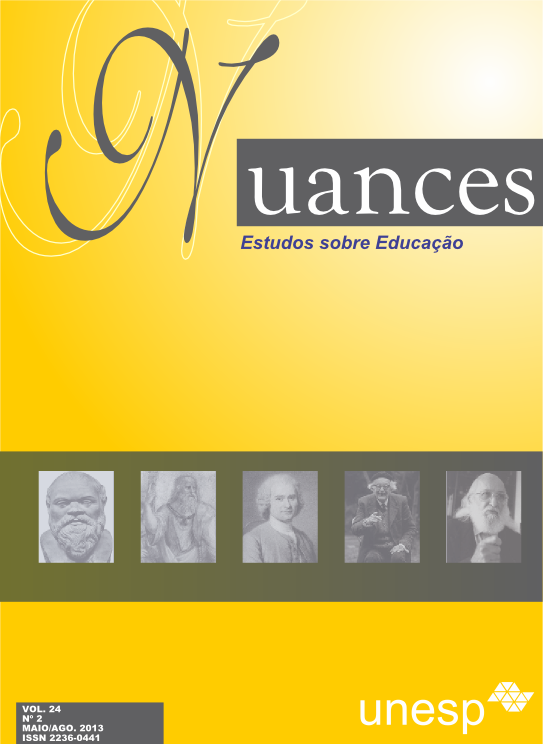O OLHAR DO GESTOR SOBRE A CULTURA AVALIATIVA NO CONTEXTO ESCOLAR
DOI:
https://doi.org/10.14572/nuances.v24i2.2483Keywords:
Assessment, School, Management, Teacher trainingAbstract
The thematic educational assessment has often been taken as an object of reflection in the context of research on training and teaching. Recently, large-scale assessments imposed by federal and state governments in the late twentieth century, has been promoting the construction of an evaluation culture within schools. This culture takes the centrality of the evaluation process of the classroom and figures of teacher and students, expanding it to the school community and to educational management. The discussion on this issue finds fertile ground floor of the school, where the contradictions in the relationship between the written and the lived educational policies are presented more clearly. Thus is born the present study that aims to reflect on the limits and possibilities of the use of the results of internal and external evaluation of the work of school manager. To have so much support in the qualitative research approach, seeking access in the subject and the context in which the phenomenon manifests educational studied the information necessary to understand the problem. Strategies were used as approximation to reality participant observations, document analysis of reports evaluating the Permanent System of Evaluation of Basic Education in the state of Ceará the years 2009 to 2011 and interview with the manager of a local public school Ceará. The results point to the need to adopt a problem-solving attitude on the part of school administrators cores, taking the results of evaluations and their own institutional practices as references to the achievement of moments of training that supports the decision-making on the direction of the school critically and collaboratively.
Downloads
Downloads
Published
How to Cite
Issue
Section
License
Atribuição-NãoComercial
CC BY-NC
Esta licença permite que outros remixem, adaptem e criem a partir do seu trabalho para fins não comerciais, e embora os novos trabalhos tenham de lhe atribuir o devido crédito e não possam ser usados para fins comerciais, os usuários não têm de licenciar esses trabalhos derivados sob os mesmos termos.





